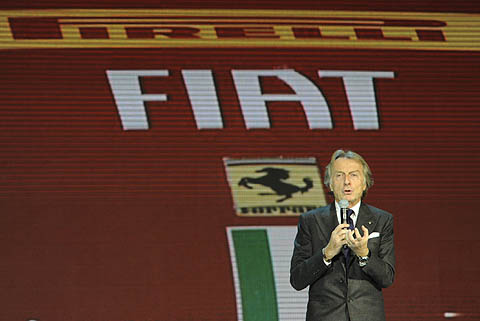


02/04/2013
NEWS STORY
 |
For the past year there has been talk that Formula One will float on the Singapore stock exchange and although this hasn't actually happened, it has got very close. As Pitpass' business editor Christian Sylt revealed in February, F1's controlling shareholder, the private equity firm CVC, hopes to go ahead with the flotation in October. Everything is in place to allow this to happen.
In May last year a prospectus about F1 was produced and this needs to be updated with the latest figures if the flotation goes ahead later this year. It is often said that it is unlikely F1 will float because the process would involve disclosure of too much sensitive information. The very existence of the prospectus seems to disprove this theory since it contains most of the sensitive information in any flotation. F1 is certainly no exception.
If you have ever wondered whether Ferrari really does get paid more than any other team then the prospectus is the place to look. Ditto if you want to know whether Ferrari has a veto over F1's regulations. In fact, the prospectus reveals that Ferrari's influence over F1 stretches so far that it even has first refusal on supplying cars to race in the sport's support series if the Porsche Supercup ever vacates this place. It may sound like biased behaviour but there is good reason for Ferrari's preferential treatment.
The big news is on page 179 of the prospectus which covers the terms of the teams' contracts to race in F1. It states that "in respect of Ferrari only, Ferrari may terminate if the regulatory safeguards agreed between the FIA and Ferrari do not allow Ferrari to veto any change to the regulations already announced or introduced (subject to certain exceptions)."
It doesn't get much more blunt than that: if Ferrari doesn't like the regulations then it can change them and it is the only team in F1 that has this power. But there's more - the prospectus, and reports by financial analysts, also reveal that Ferrari gets more prize money than any other team.
Page 176 of the prospectus covers the teams' financial benefits which for most of them means a share of F1's prize fund. This is comprised of 47.5% of F1's profit which is known in the trade as Earnings Before Interest, Taxes Depreciation and Amortisation (EBITDA). The top ten teams in the standings share this but the prospectus reveals that Ferrari, McLaren and Red Bull Racing get an additional payment. This is because they are what are known as Constructors' Championship Bonus (CCB) teams.
Pitpass revealed back in February that the CCB teams get financial benefits under their contracts to race in F1 and the prospectus confirms that this is because they are "the top three Teams determined primarily on Events won in the four seasons prior to 2012."
The prize for this success is that in addition to getting prize money for being in the top ten, Ferrari, McLaren and Red Bull Racing share "the greater of 7.5% of our Prize Fund EBITDA, and US$100 million (the 'CCB Fund')." Ferrari is third in the ranking based on races won in the four seasons prior to 2012 and, according to page 176 of the prospectus, this sees "the third Team receiving 30% of the CCB Fund (minimum US$30 million)."
Page 176 of the prospectus and reports from financial analysts also reveal that in return for being F1's longest-standing team, Ferrari gets "the greater of an amount which is capped at 5% of our Prize Fund EBITDA and US$62.2 million." This gives Ferrari a minimum of £60.5m ($92.2m) and, in addition, it gets a cut in the prize fund comprised of 47.5% of F1's profits.
Putting that in perspective, before a single race begins, Ferrari gets guaranteed prize money which is pretty much equivalent to Marussia's entire annual budget.
Ferrari is the only team which has competed every year since F1 began in 1950 and has won more titles than any of its rivals but that isn't the only reason for its preferential treatment. It is also the only car manufacturer involved with F1 which directly signs its contract to race in the sport rather than using a subsidiary company to do so. This is crucial because if a manufacturer pulls out of F1 it can simply close down the company which runs the team meaning that it can't be pursued for damages. In contrast, if Ferrari were to breach its contract by pulling out of F1 the car company would be directly liable.
It gives F1 impressive security and Ferrari is well rewarded for doing so. Its benefits stretch way beyond receiving more cash and control than any other team in F1.
Page 177 of the prospectus reveals that the longest-standing team gets "a right of first refusal to run an international motor sport series for its cars as a support event (i.e. to be included in the track programme of an Event as a support event to the World Championship)."
Ferrari's chairman Luca di Montezemolo even benefits directly from having steered the Italian marque to success in F1. He has been granted an option on a 0.25% stake in F1 once it floats and in March last year he was appointed a non-executive director of F1's ultimate parent company Delta Topco. It is far from a token position.
Di Montezemolo sits on F1's remuneration and nomination committees. The former approves the policy for determining how much directors get paid and the latter recommends which directors should be re-appointed. It gives di Montezemolo a say in shaping F1's future and puts Ferrari closer to the heart of the sport than any of its rivals.